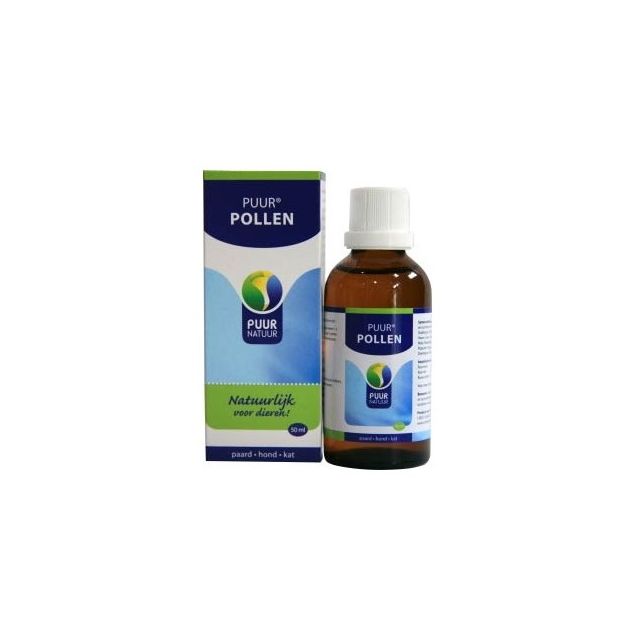The respiratory tract of horses
The respiratory system of the horse is important for oxygen exchange. Respiratory problems such as coughing, colds, or asthma are common. Pharmacy4pets helps you recognize respiratory problems in your horse in time and offers you a wide range of medications and supplements for healthy airways.
The structure of the horse's respiratory system
The horse's respiratory system can be divided into:
- The upper or anterior airways (nasal passages, throat, guttural pouches, and windpipe).
- The lower or deep airways (bronchi, bronchioles, and alveoli in the lungs).
Oxygen-rich air is inhaled through the nose. The air passes through the nasal cavity, throat, and windpipe to the lungs. The respiratory system can be compared to an inverted tree, with the windpipe being the trunk. The windpipe is a hollow tube with cartilage rings on the outside. The large branches are the bronchi, which branch further into smaller hollow cartilage tubes, the small bronchi. These branch out even more into smaller tubes without cartilage. These bronchioles are kept open by muscles. The bronchioles end in the alveoli, where gas exchange takes place: oxygen enters the body, and carbon dioxide is expelled.
The lung tissue is elastic, and the airways contain ciliated cells and mucus-producing gland cells. The mucus traps incoming dust and/or pathogens, and the cilia work them out again. A beautiful self-cleaning system! If it functions, of course...
Symptoms of respiratory diseases
Unfortunately, horses can also suffer from respiratory diseases. If you suspect that your horse is affected, you can recognize it by these symptoms:
- Coughing.
- Nasal discharge.
- Shortness of breath.
- Rapid breathing at rest (the normal breathing rate of a horse at rest is 8-14 times per minute).
- Noises when breathing.
- Fever.
- Reduced endurance.
NB: Coughing and/or a runny nose are NEVER normal and should not be ignored. There is no such thing as an 'innocent cough' in horses.
Common respiratory diseases
There are various respiratory diseases that can affect horses. We have listed the most common ones for you.
Contagious anterior respiratory diseases in horses
Influenza (flu), strangles, and rhinopneumonitis are three contagious diseases that occur regularly in horses. Influenza is caused by the influenza virus, strangles by the strangles bacterium (Streptococcus equi equi), and the cause of rhinopneumonitis is the equine herpesvirus (EHV, type 1 or 4). A common symptom of these three contagious diseases is a yellow-green runny nose, meaning the horse has a cold. With strangles, the horse gets a severe sore throat, making eating and swallowing difficult. The horse may also develop swelling under or behind the jaw. Horses with flu are often very sick with high fever. EHV can cause not only respiratory problems but also abortion and neurological symptoms. Horses can be vaccinated against these diseases. In addition, hygiene measures, for example, when a new horse arrives in the stable, are extremely important to prevent these diseases.
Acute (deep) respiratory infection
In an acute respiratory infection, usually caused by a virus, the horse becomes severely ill quickly. The horse is lethargic, has a fever, will cough and have nasal discharge, and be short of breath. If an acute respiratory infection is not treated in time, it can become chronic. Call the vet immediately if you suspect an acute respiratory infection!
Asthma in horses
In asthma, the horse is sensitive to dust. This causes an inflammation in the bronchi, more and thicker mucus is produced, and the airways become narrower. The thick mucus is often difficult to cough up and therefore accumulates. The accumulated mucus and the narrowing of the airways sometimes cause severe shortness of breath. The shortness of breath is visible through forced inhalation and exhalation; the abdominal movement becomes clearly visible, the nostrils move, and sometimes even the anus moves. Additionally, a horse with asthma will cough and sometimes there are breathing sounds. In chronic respiratory diseases, serious permanent changes often occur, such as damage to the alveoli and the replacement of elastic lung tissue with stiff scar tissue. It is therefore important to always contact the vet in case of respiratory problems.
Treatment of respiratory problems in horses
Of course, the treatment of respiratory problems depends on the cause. Rest and fresh air (without drafts!) are important for horses with respiratory problems. In the case of a (secondary) bacterial infection, antibiotics will be given. Infection of other horses must be prevented.
For coughing due to asthma, environmental adjustments are especially important: it must be as dust-free as possible. You can achieve this by giving the hay on the ground instead of in a hayrack (prevent sand intake here, otherwise, you increase the risk of sand colic) and making it wet. Choose a dust-free bedding and ventilate well. Give your horse as much pasture time as possible (except in the case of pasture asthma, where a pollen allergy plays a role). Anti-inflammatory drugs are often part of the treatment plan. With asthma, these anti-inflammatory drugs often need to be given long-term, with possible consequences for the horse's health. By nebulizing the medications instead of giving them orally, much fewer side effects occur.
Sometimes bronchodilating medication is necessary to give the horse more air. With natural supplements like Equistro Secreta Pro Max, fenugreek or garlic, you support the immunity and airways of your horse.
To prevent respiratory problems from becoming chronic and causing irreversible damage to the lungs, it is important to realize that coughing and non-watery nasal discharge are never normal, and you should always contact your vet if your horse is coughing or has a runny nose. If you have a question about our products or your horse's respiratory system, please contact us.

